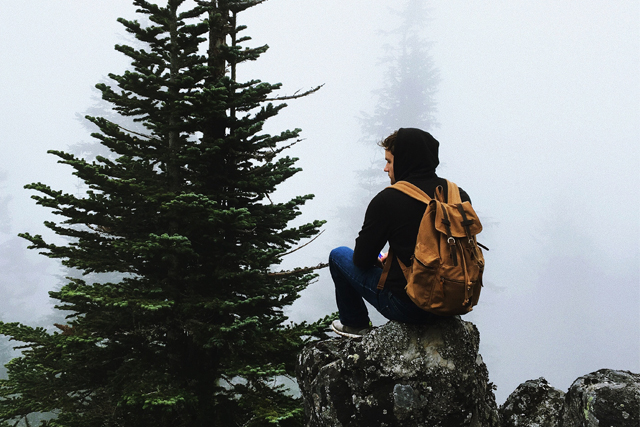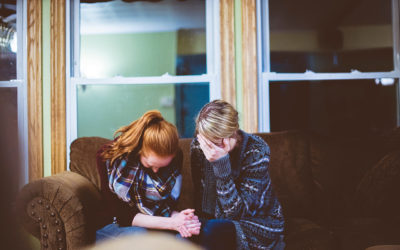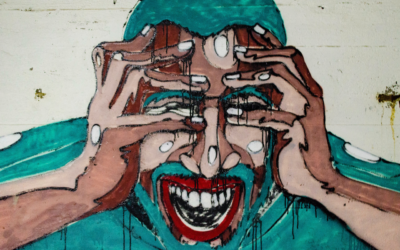Anxiety is like fire: It can keep us safe and warm, or completely devastate our property and our lives. It’s good to be a little anxious at times. When walking down a deserted street at night, anxiety keeps us on alert and ready to fight or take flight should a dangerous situation arise.
But for many people, especially adolescents, anxiety can become the norm instead of the exception. Just walking into a classroom or being with a group of people they don’t know can become crisis situations. And, the more they experience these scary events, the more anxiety becomes a chronic condition.
Here are 4 things parents and teachers should know about adolescent anxiety.
1. Anxiety Refers to Physical Symptoms Associated with Negative Thoughts
Negative thoughts such as, “No one will like me,” or “Everyone is going to think I’m stupid” come first. These thoughts are then followed by physical symptoms such as a stomach ache, diarrhea, or shaking and shallow breathing. Young people need to learn how to not only shift their thinking (“This will feel awkward but I’ll be okay”) but also cope with the physical stress (take slow, deep breaths). This will help kids know without a doubt they can handle uncomfortable feelings instead of avoiding them.
2. Dealing with Anxiety Requires Problem Solving Skills
Life is full of uncertainties and gray areas. Parents of very young children help them navigate through these situations. But adolescents must be equipped with problem solving skills so they may tolerate uncertainty instead of avoiding it, as avoidance only makes things worse and gives anxiety more power.
3. The Adolescent Mind is More Sensitive to Environmental Stress
The adolescent mind is a jumble of chemical changes that can make any situation seem like time spent in a fun house. These hormonal changes make adolescence a particularly challenging time to cope with anxiety.
4. Anxiety is a Vicious Cycle
When young people are anxious, it’s easy for the adults around them to become anxious as a response. But, the more anxious parents and teachers are, the more controlling and inflexible they may become.
As adults, it’s important we manage our own anxiety around our kids and students so we can manage the overall situation much more effectively.
If you or a loved one is struggling with anxiety, therapy can help. If you’re interested in exploring counseling, please contact us today. We would be happy to speak with you about how we may be able to help.

Is Social Media Bad for Your Mental Health?
Have you been feeling a bit low lately, but you can’t quite put your finger on why? It may have something to do with your social media habits. According to a recent study, social media use can increase depression and loneliness. For years people have suspected that...
Helping Kids Cope with Loss
Parents do their best to shield their children from the harsh realities of the world. But as much of an effort as they put in, parents can’t always protect their children from experiencing the pain of loss. Whether it’s the loss of a beloved pet, a childhood friend,...
How to Cope with the Stress and Anxiety Caused by COVID-19
If you’re like most people, you are doing your best to stay calm during COVID-19 pandemic. But that can feel incredibly difficult at times. When not worrying about friends and loved one’s health, there’s also the conflicting information provided by the media and the...
Quick! Get Your "Top Tips For Getting the Most Out of Counseling" Cheatsheet!
Like some of what you've seen and want to see more? Sign up for our Mailing List for a free cheat sheet on making the most out of counseling. Our list members also gain access to exclusive specials and announcements, as well as the latest from our Counseling Blog!





